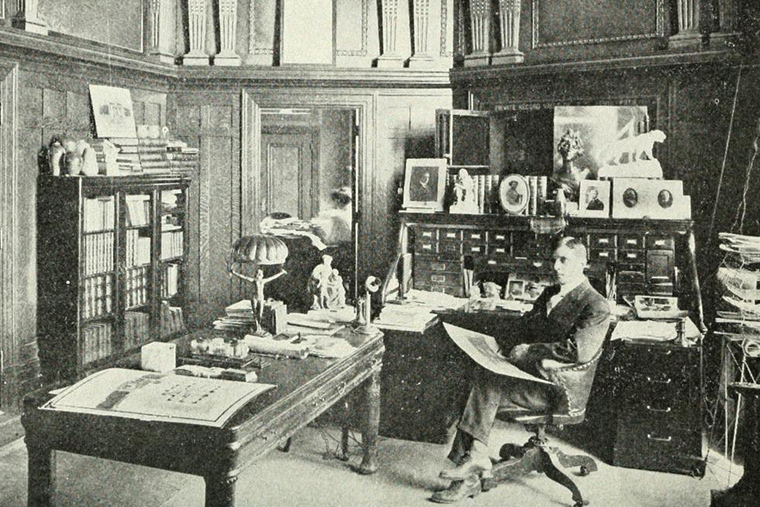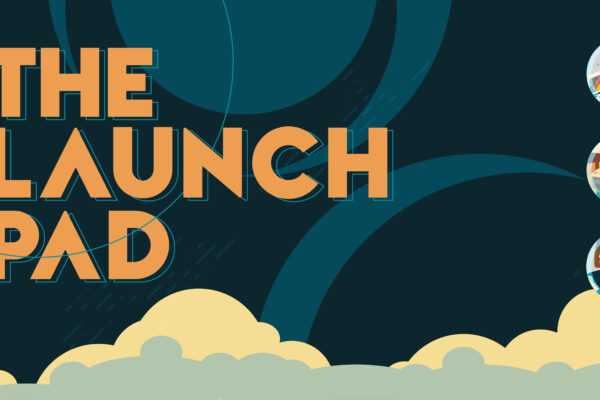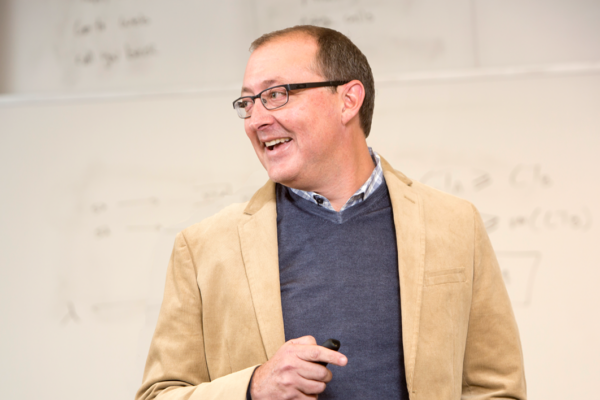“All businesses exist for one reason,” says Doug Villhard, MBA ’14, academic director of entrepreneurship at Olin Business School. “To solve a problem for a customer.”
Even a startup that’s able to raise eye-popping amounts of venture capital, “If you don’t know your customers and what they need, it’s a façade,” says Villhard, who is also a professor of practice in entrepreneurship. “Fall in love with the problem, then come up with a unique solution — one that a customer is willing to spend money on.

“Know your customers, know their challenges, and the rest will follow,” he says.
It’s timeless advice, of which Villhard knows well. In 2021, he sold a company he co-founded in 2007. “It’s fun teaching entrepreneurship having actually done it,” he says. “If you want to learn brain surgery, do you want to learn from someone who’s read about it, or someone who’s actually opened a brain before?”
Doing things differently comes naturally for Villhard, who took over Olin’s entrepreneurship program in 2019. He likes being in the classroom and working with students, but characteristic of all entrepreneurs, his mind is always in motion. And in 2022, Villhard put his knowledge and experience to pen by publishing not a textbook on entrepreneurship, but a novel.
Company of Women is historical fiction based on the life of E.G. Lewis, a home products salesman who, at the turn of the 20th century, took a local publication and grew it into The Woman’s Magazine, which had the largest paid subscription of any publication in the world around the time of the 1904 World’s Fair. Lewis also founded University City and was an inventor, political activist and a champion of women’s rights — an entrepreneur before the word was invented.
“Lewis fascinated me from the first time I read about him,” Villhard says. “Here was this guy who was really, really good at listening to his customers. And in his case, almost all of them were women.
“So I set out to write a multilayered novel that not only had good business principles, but was also a St. Louis story and a woman’s story,” he says.
Among the pages of Company of Women are the tenets of being a good entrepreneur, such as the importance of relationship building; tapping into underserved markets; researching your customers; knowing your detractors; and the importance of feedback. The novel also has a bit of romance, legal troubles, political victories and personal setbacks — all the twists and turns that may also come with a life of entrepreneurship.
“E.G. Lewis was ahead of his time,” Villhard says. “He doesn’t play checkers. He plays chess, and he was always several moves ahead of everyone else. But what might have been most important about him was his ability to surround himself with people who could get things done. For Lewis, that was women. The magazine was rooted in household products, recipes and fashion, and catered to an audience that was thirsting for it. His ability to create a team that could provide all of that was key to who he was.”
Villhard says he has students come to him all the time with ideas for a business or startup, wanting him to tell them whether or not they have a good idea. “My answer is always, ‘Who cares what I think?’, ” he says. “It’s ‘What do your customers think? How many of them have you talked to?’
Once students take the time to speak with potential customers, the feedback always inspires changes to the original business idea.
“It’s analogous to having your writing critiqued, because the audience will see things that you don’t see, or that you didn’t intend or an idea that you’re not getting across,” Villhard says.
“Customer validation is the only real way to tell that you’re onto something.”




